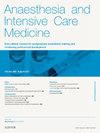产科的同意
IF 0.3
Q4 ANESTHESIOLOGY
引用次数: 0
摘要
医疗同意,即同意治疗或程序的好处和风险的过程,在怀孕和分娩过程中具有特殊的挑战。同意应该采取讨论风险的形式,并包括替代方案。这应该是一个持续的过程,如果个人选择,有权撤回同意或寻求进一步的信息。理想情况下,应该讨论患者可能重视的所有风险。要同意,一个人必须有能力。人们普遍认为,虽然分娩可能涉及压力、疼痛和疲劳,而且往往是在时间紧迫的情况下,但妇女通常会保留同意的能力。这包括在社会规范之外做出决定的权利,或将自己或未出生的孩子的生命置于危险之中的决定的权利。在极少数情况下,无行为能力的妇女在怀孕期间需要医疗干预,应根据符合母亲最大利益的适当立法进行。本文章由计算机程序翻译,如有差异,请以英文原文为准。
Consent in obstetrics
Medical consent, the process of agreeing the benefits and risks of a treatment or procedure, has specific challenges in pregnancy and labour. Consent should take the form of a discussion about risk and include the alternatives. It should be an ongoing process with the right to withdraw consent or seek further information if the person chooses. Ideally all risks to which the patient might attach significance should be discussed. To consent, a person must have capacity. It is accepted that while labour can involve stress, pain, and fatigue, and will not infrequently be in a time-critical situation, women will normally retain the capacity to consent. This includes the right to make decisions outside of societal norms or which put at risk the life of herself or unborn child. In rare circumstances where an incapacitated woman requires medical intervention in pregnancy this should be done in accordance with appropriate legislation acting in the best interests of the mother.
求助全文
通过发布文献求助,成功后即可免费获取论文全文。
去求助
来源期刊

Anaesthesia and Intensive Care Medicine
ANESTHESIOLOGY-
CiteScore
0.50
自引率
0.00%
发文量
152
期刊介绍:
Anaesthesia and Intensive Care Medicine, an invaluable source of up-to-date information, with the curriculum of both the Primary and Final FRCA examinations covered over a three-year cycle. Published monthly this ever-updating text book will be an invaluable source for both trainee and experienced anaesthetists. The enthusiastic editorial board, under the guidance of two eminent and experienced series editors, ensures Anaesthesia and Intensive Care Medicine covers all the key topics in a comprehensive and authoritative manner. Articles now include learning objectives and eash issue features MCQs, facilitating self-directed learning and enabling readers at all levels to test their knowledge. Each issue is divided between basic scientific and clinical sections. The basic science articles include anatomy, physiology, pharmacology, physics and clinical measurement, while the clinical sections cover anaesthetic agents and techniques, assessment and perioperative management. Further sections cover audit, trials, statistics, ethical and legal medicine, and the management of acute and chronic pain.
 求助内容:
求助内容: 应助结果提醒方式:
应助结果提醒方式:


